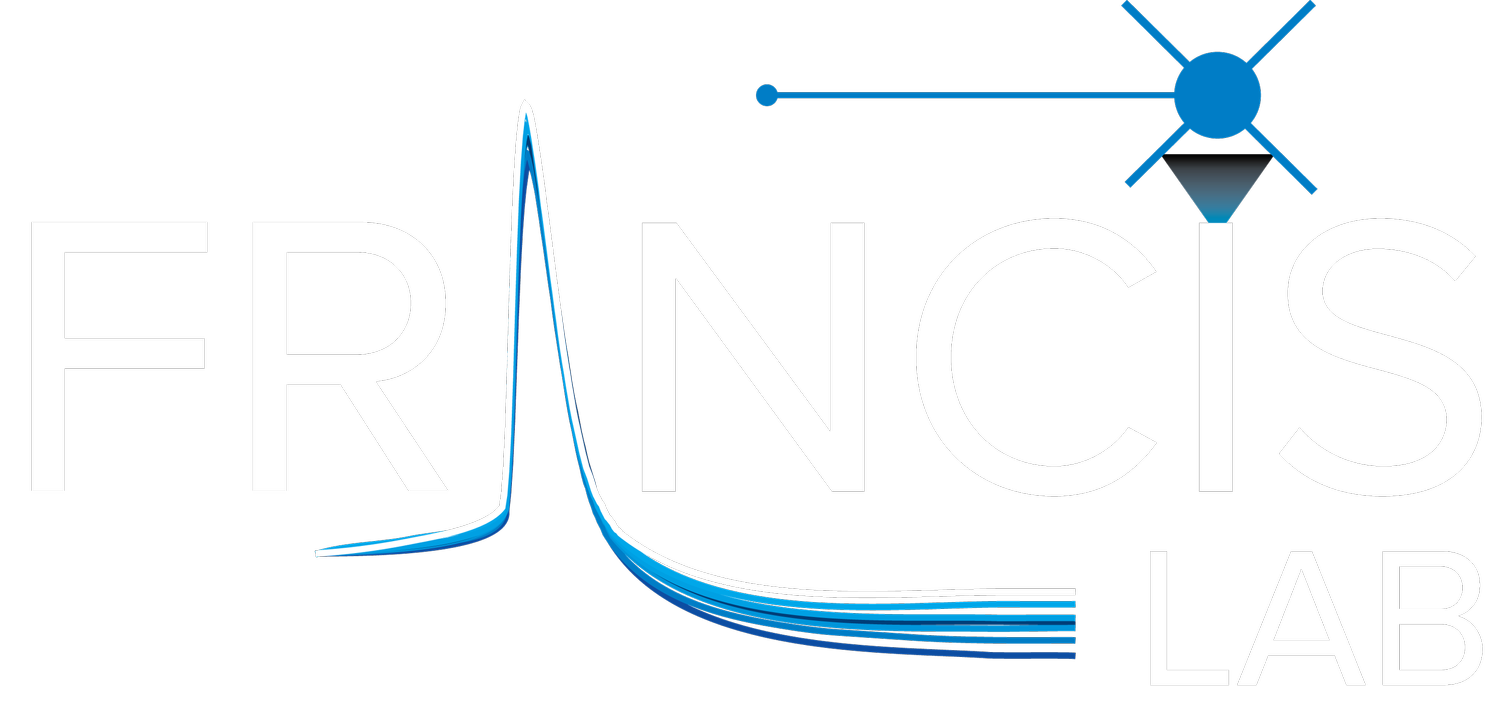Assistant Professor, PI
Chase Francis has a long-standing interest in how high frequency stimulation, commonly used in deep brain stimulation, alters motivational states. His research career began at Appalachian State University where he received his B.A. and B.S. in biology and psychology, respectively, studying the effects of audiogenic seizures on emotional states in rats under the mentorship of Dr. Mark Zrull. In 2011, he continued his training at the University of Maryland, Baltimore working in the molecular neurocircuitry lab of Dr. Mary Kay Lobo where he obtained his Ph.D. (first generation academic). Here, he studied the role of medium spiny neuron subtypes in outcomes to social defeat stress and uncovered molecular and structural underpinnings driving alterations in medium spiny neuron neurophysiology. He joined the Synaptic Plasticity Section of the NIDA IRP in 2016 where he studied peptidergic release and plasticity within the striatum. In 2019, he continued his research in the Integrative Research Branch under the advisement of Dr. Marisela Morales. He joined the Drug Discovery and Biomedical Sciences Department in June 2022. The lab focuses on how brain stimulation facilitates peptide and neuromodulator release within the striatum altering local circuitry and behavioral responding to salient stimuli. The primary goal of the lab is to refining brain stimulation protocols or develop novel and targeted drug therapeutics to treat emotion-related psychiatric disorders. In his free time he enjoys hiking, playing and listening to music, and being silly with his kids.
Desh Deepak Ratna, Ph.D.
Post-doctoral Researcher
Coming Soon
Cortez Gray, B.S.
Research Specialist
Cortez received his B.S in Biology from the University of South Carolina in May 2022 and hopes to continue on to graduate school to attain his PhD. He is fascinated with the molecular mechanisms that drives neuroplasticity involved in learning and memory formation. He joined the Francis neuroscience lab to further his knowledge of the nucleus accumbens and its role in learning and behavior modification. He hopes to use this experience and future endeavors to develop new therapeutic treatments for neuropathic conditions such as depression, anxiety, Alzheimer's, etc. When not in the lab he enjoys traveling, playing music, and tinkering.



